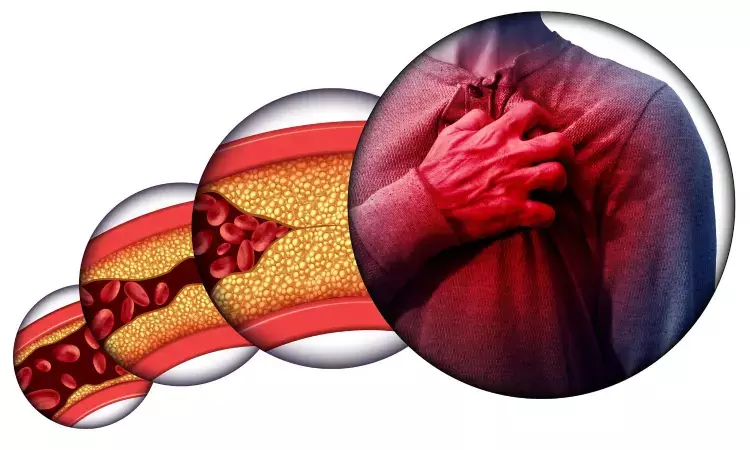- Home
- Medical news & Guidelines
- Anesthesiology
- Cardiology and CTVS
- Critical Care
- Dentistry
- Dermatology
- Diabetes and Endocrinology
- ENT
- Gastroenterology
- Medicine
- Nephrology
- Neurology
- Obstretics-Gynaecology
- Oncology
- Ophthalmology
- Orthopaedics
- Pediatrics-Neonatology
- Psychiatry
- Pulmonology
- Radiology
- Surgery
- Urology
- Laboratory Medicine
- Diet
- Nursing
- Paramedical
- Physiotherapy
- Health news
- Fact Check
- Bone Health Fact Check
- Brain Health Fact Check
- Cancer Related Fact Check
- Child Care Fact Check
- Dental and oral health fact check
- Diabetes and metabolic health fact check
- Diet and Nutrition Fact Check
- Eye and ENT Care Fact Check
- Fitness fact check
- Gut health fact check
- Heart health fact check
- Kidney health fact check
- Medical education fact check
- Men's health fact check
- Respiratory fact check
- Skin and hair care fact check
- Vaccine and Immunization fact check
- Women's health fact check
- AYUSH
- State News
- Andaman and Nicobar Islands
- Andhra Pradesh
- Arunachal Pradesh
- Assam
- Bihar
- Chandigarh
- Chattisgarh
- Dadra and Nagar Haveli
- Daman and Diu
- Delhi
- Goa
- Gujarat
- Haryana
- Himachal Pradesh
- Jammu & Kashmir
- Jharkhand
- Karnataka
- Kerala
- Ladakh
- Lakshadweep
- Madhya Pradesh
- Maharashtra
- Manipur
- Meghalaya
- Mizoram
- Nagaland
- Odisha
- Puducherry
- Punjab
- Rajasthan
- Sikkim
- Tamil Nadu
- Telangana
- Tripura
- Uttar Pradesh
- Uttrakhand
- West Bengal
- Medical Education
- Industry
LDL Electronegativity- a novel determinant of mortality risk in ASCVD

Simon Kraler et al. and colleagues from the Center for Molecular Cardiology, University of Zurich, have highlighted that Reduced low-density lipoprotein (LDL) electronegativity is associated independently with mortality risk at 30 days and one year after the acute event. LDL electronegativity supersedes several risk factors for predicting 1-year death, including LDL cholesterol. When added to the GRACE risk score, it enhances the discriminatory performance of the score. Overall, this study has proved that LDL quality determines outcomes in ASCVD patients.
LDL particles of different electronegativity have a distinct lipidome, with potential implications for their athero-/thrombogenicity. It is a determining factor for mortality risk in patients with established atherosclerotic cardiovascular disease.
Low-density lipoprotein (LDL)-cholesterol (LDL-C) promotes atherosclerotic cardiovascular disease (ASCVD), with changes in LDL electronegativity modulating its pro-atherogenic/pro-thrombotic effects.
There needs to be more data on Whether such alterations are associated with adverse outcomes in patients with a history of acute coronary syndromes ACS. These patients are at high cardiovascular risk.
The study design included 2619 patients who had a history of ACS. They assessed LDL electronegativity and lipidome.
The essential points of research design are:
- There was an association between LDL electronegativity changes and all-cause mortality at 30 days with aHR and one year with a notable association with cardiovascular mortality.
- LDL electronegativity superseded traditional risk factors.
- LDL electronegativity improves GRACE score performance.
- Enriched lipid species (L1 vs L5) were independently linked to the mortality risk.
They said altered LDL quality is a novel determinant of adverse outcomes in ACS patients.
We demonstrate for the first time that attenuated LDL electronegativity, as assessed by the L1-L5 ratio, unfavourably associates with all-cause and cardiovascular mortality after the index ACS, over and above the updated GRACE risk score, they said.
Electronegative properties of LDL particles are tightly linked to alterations in their lipidome and represent a novel determinant of mortality risk in patients with ACS.
https://www.atherosclerosis-journal.com/article/S0021-9150(23)00207-1/fulltext
BDS, MDS in Periodontics and Implantology
Dr. Aditi Yadav is a BDS, MDS in Periodontics and Implantology. She has a clinical experience of 5 years as a laser dental surgeon. She also has a Diploma in clinical research and pharmacovigilance and is a Certified data scientist. She is currently working as a content developer in e-health services. Dr. Yadav has a keen interest in Medical Journalism and is actively involved in Medical Research writing.
Dr Kamal Kant Kohli-MBBS, DTCD- a chest specialist with more than 30 years of practice and a flair for writing clinical articles, Dr Kamal Kant Kohli joined Medical Dialogues as a Chief Editor of Medical News. Besides writing articles, as an editor, he proofreads and verifies all the medical content published on Medical Dialogues including those coming from journals, studies,medical conferences,guidelines etc. Email: drkohli@medicaldialogues.in. Contact no. 011-43720751


